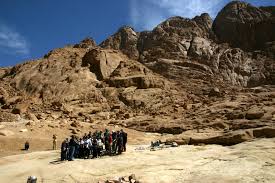
Introduction to Mount Sinai
Mount Sinai is a pivotal site in both religious and historical contexts. Located in the Sinai Peninsula of Egypt, this mountain is traditionally identified as the place where Moses received the Ten Commandments from God, making it a significant destination for millions of pilgrims and tourists alike. Its relevance stretches beyond religious beliefs, as it also serves as a symbol of nature’s majesty and the melding of human history with spirituality.
Historical Importance of Mount Sinai
Mount Sinai, also referred to as Jebel Musa, has long been recognised as a location of deep spiritual importance. According to biblical accounts, it is here that the Israelites camped during their Exodus from Egypt. The mountain reaches a height of approximately 2,285 metres, offering stunning views of the surrounding landscape. Archaeological evidence suggests that this region has been a site of human activity for thousands of years, with traces of ancient settlements and religious practices.
Modern-Day Significance and Tourism
In recent years, Mount Sinai has seen an increase in tourism, with religious and adventure travellers flocking to its slopes. Many pilgrims undertake the journey to the summit, often beginning their ascent in the early hours of the morning to witness the breathtaking sunrise from the peak. The experience encapsulates the natural beauty of the region while providing a profound spiritual journey for visitors.
The surrounding area, including the Saint Catherine Monastery—one of the oldest Christian monasteries in continuous use—adds to the cultural and historical richness of Mount Sinai. This UNESCO World Heritage Site draws visitors from all corners of the globe, further confirming the mountain’s significance throughout history.
Conclusion and Future Outlook
Mount Sinai remains a symbol of faith, history, and natural beauty. Its dual role as a religious pilgrimage site and a destination for outdoor enthusiasts highlights the ongoing importance of this landmark in contemporary society. As global interest continues to grow, efforts to preserve the ecological and cultural integrity of the region will be crucial to ensuring that generations to come can explore and appreciate the profound significance of Mount Sinai. With the rise in eco-tourism and cultural appreciation, the future of Mount Sinai looks promising, blending preservation with education and reverence.
You may also like

The Importance of Nations in Modern Society

Understanding National Events and Their Significance

The Significance of the West in Today’s World
SEARCH
LAST NEWS
- Remembering Wendy Richard: The Promise to Co-Star Natalie Cassidy
- How Did Anglian Water Achieve an ‘Essentials’ Rating for Mental Health Accessibility?
- Shai Hope Leads West Indies in T20 World Cup Clash Against South Africa
- What We Know About Weston McKennie: Future at Juventus and Past at Leeds
- What We Know About the Upcoming Live Nation Antitrust Trial